An authentic destination, Uganda still feels untouched, far from mass tourism. Water shapes much of its landscape — rivers, roaring waterfalls, and the vast Lake Victoria whose islands, like Bugala, offer beaches and quiet moments by the shore.
To the west, the dense forest of Bwindi shelters mountain gorillas, while Queen Elizabeth National Park stretches out with its savannas and wetlands, home to elephants, buffalo, and countless birds. Each reserve shows a different side of the country, often surprising.
Crossing these varied lands, from mist-covered mountains to sunlit plains, you begin to understand why Uganda is called the “Pearl of Africa.” The feeling lingers, made of contrasts and memorable encounters.
Top 5 Guided Tours
Places to Visit
Key Facts
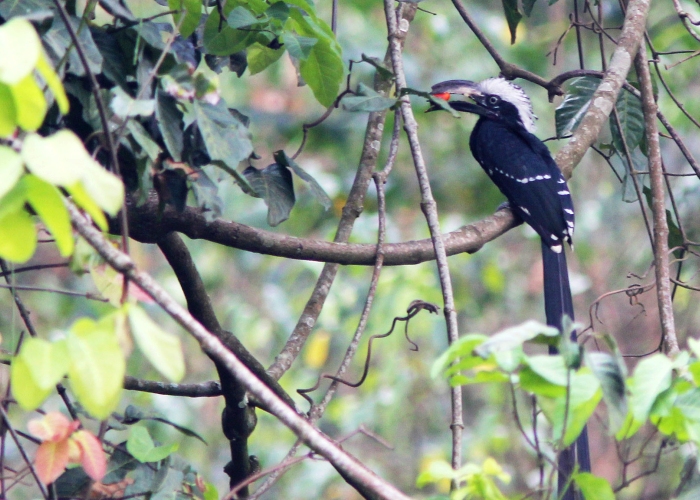
At the foot of the Rwenzori Mountains, Semliki National Park stretches out as a dense, humid rainforest cut by narrow tracks. The vegetation feels endless — vines, palms, mist clinging to the marshy clearings. It’s like stepping into a world apart.
Among the park’s curiosities are the Sempaya hot springs, with steam rising from the earth and water bubbling in the middle of the jungle. Birdlife is abundant here, their calls ringing out at dawn, soon joined by the chatter of colobus monkeys high in the trees.
Not far away, Queen Elizabeth National Park opens up into wide savannas and dusty tracks. Farther north, Lake Albert forms the border with the Democratic Republic of Congo, a vast sheet of calm water dotted with pelicans. These contrasting landscapes reveal just how diverse western Uganda can be.
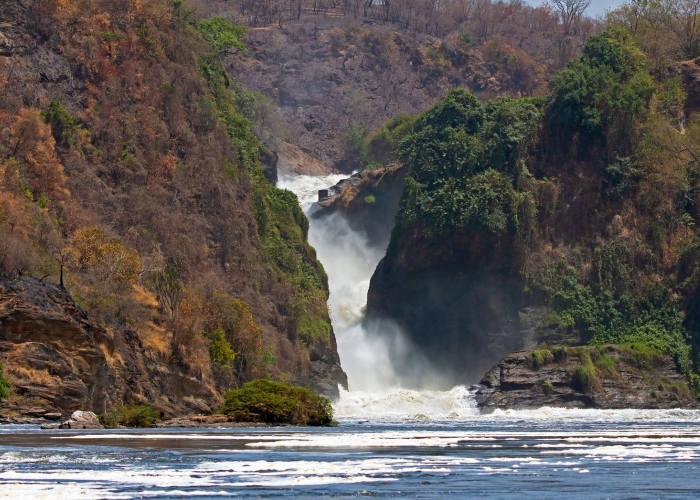
In northwestern Uganda, Murchison Falls narrows into a tight gorge before crashing into the Victoria Nile with a roar. Spray rises as the river thunders through, then widens again downstream. The sight impresses both for its raw power and for how close you can get to it.
The banks are alive with wildlife — hippos, crocodiles, countless birds, and sometimes elephants coming to drink at the water’s edge. You can approach the falls by boat or hike the trails that climb the surrounding hills, each offering a different vantage point.
A little farther on, Lake Albert stretches out in calm contrast to the river’s turmoil. Nearby, Queen Elizabeth National Park continues the mosaic of landscapes — savannas dotted with acacias, open plains where lions and buffalo roam. Together, these stops form a natural thread linking the great reserves of western Uganda.
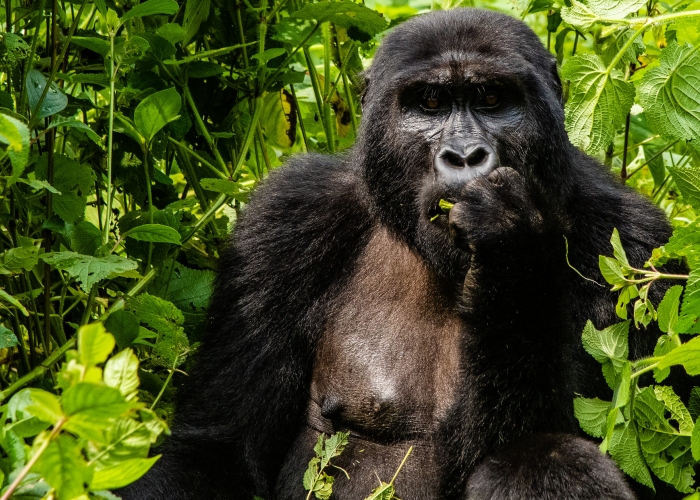
In southwestern Uganda, the Bwindi Impenetrable Forest stretches across misty hills and dense jungle. The trails are narrow, sometimes slippery, but they lead to one of the country’s most unforgettable sights — the mountain gorillas that quietly inhabit this place.
The forest is never truly silent. Bird calls, rustling branches, and streams tumbling between roots create a constant backdrop. Nearby, terraced fields and hillside villages contrast with the untamed greenery.
Venture a little farther and Queen Elizabeth National Park shows a different face — open savannas with elephants crossing the dirt tracks. To the north, Lake Bunyonyi lies in a volcanic basin, dotted with lush islands and still waters. Each of these places adds its own tone to the journey.
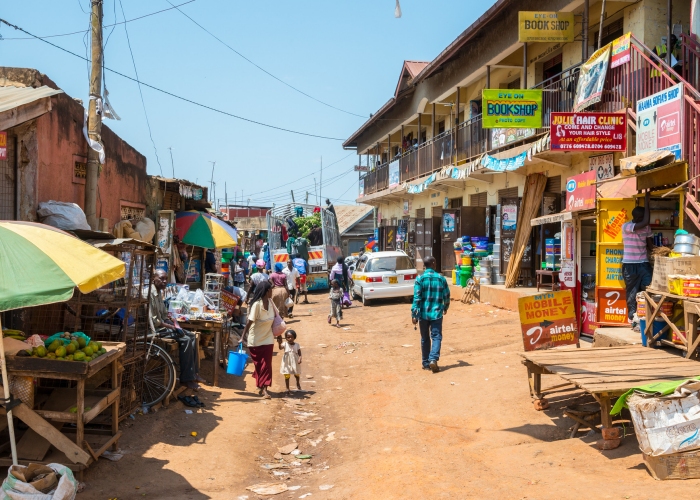
Entebbe, in Uganda, sits quietly on the shore of Lake Victoria, its relaxed pace instantly putting visitors at ease. Wide trees, humid breezes, and small cafés where time seems to slow set the tone of the town.
The Entebbe Botanical Gardens are worth a stroll, with their dense paths, colobus monkeys leaping from branch to branch, and a constant chorus of birds. You pause often — a clearing here, a lakeside path there — just enjoying the simple pleasure of looking.
At the Uganda Wildlife Education Centre, encounters are more structured but deeply informative. Rescued animals are cared for here, and guided tours shed light on Uganda’s ecosystems.
When the light begins to fade, head to Mabamba Bay. Whether at dawn or near sunset, pirogue rides give the chance to spot the elusive shoebill — sometimes motionless, sometimes suddenly appearing. Back on the lakeshore, grilled fish and silhouettes along the jetty make Entebbe a memory that lingers.
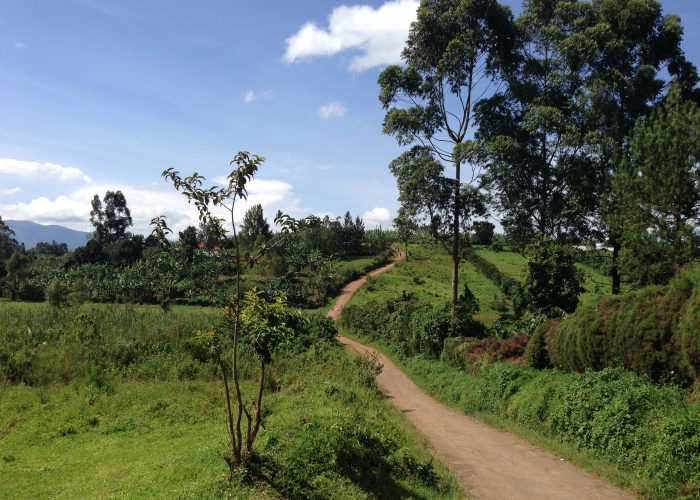
Considered by many travelers to be the most pleasant and authentic city in Uganda, Fort Portal sits in the west of the country, right next to the Rwenzori Mountains.
Beyond its peaceful and charming atmosphere, it makes a perfect base for exploring the region, with the Queen Elizabeth National Park less than an hour’s drive away. About 20 kilometers from Fort Portal, scenic treks lead around the Kasinda crater lakes.
This lush region, shaped by ancient volcanic activity, is also home to Uganda’s largest tea plantations. The roads wind through beautiful valleys and picturesque farming villages, making the journey part of the experience.
Kampala
English, Swahili
241,038 km²
October 9
45 million
Ugandan Shilling (UGX)
EAT (UTC+3)
Tropical
+256
240 V, Type G